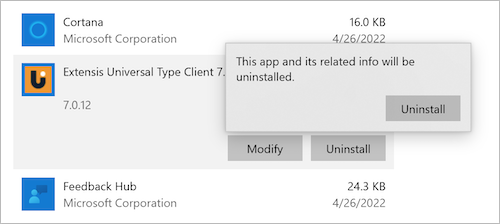

Workaround 1Īdd a restart to the end of the task sequence list for the image build. Both workarounds involve modifying the image build-in System Center Configuration Manager instead of implementing them in the already deployed image. The following workarounds can be used to avoid the error message. Before you modify it, back up the registry for restoration in case problems occur. Serious problems might occur if you modify the registry incorrectly. Resolutionįollow the steps in this section carefully. So, the RPC runtime has no problem finding the correct server process instance. On later restarts, GPSVC is appearing in a separate process from the beginning of the operating system session. This situation results in the error message that's described in the Symptoms section. Because RPC communications have already been established before the service isolation, Winlogon can no longer contact the Group Policy service. The service was originally running in a shared process with other services. The Group policy service then isolates itself into a separate SVCHOST process.
#Universal type client windows windows#
System Center Configuration Manager installs a Client-Side Extension (CSE) in the Windows image, which is detected by the Group Policy service on first start. And it communicates with user logon for user policy.

Winlogon communicates with the Group Policy service (GPSVC) through an RPC call upon system startup for computer policy. However, in some scenarios, later user logons also result in the error message.Īfter the message is displayed and the user selects OK, the logon screen is displayed again. This error message appears at first user logon after initial deployment of the image. The universal unique identifier (UUID) type is not supported.

The Group Policy Client service failed the sign-in. When a user starts the system that has the image (physical or virtual) and tries to sign in for the first time, they receive the following error message:
#Universal type client windows windows 10#
This issue occurs when the image was deployed by using System Center 2012 Configuration Manager or System Center 2012 R2 Configuration Manager.Īpplies to: Windows 10 - all editions Original KB number: 2976660 SymptomsĪssume that you use System Center 2012 Configuration Manager or System Center 2012 R2 Configuration Manager to deploy a Windows 8 or Windows 8.1 image. This article describes a situation in which a user receives a UUID error message at the first logon of a Windows 8 or Windows 8.1 image.


 0 kommentar(er)
0 kommentar(er)
